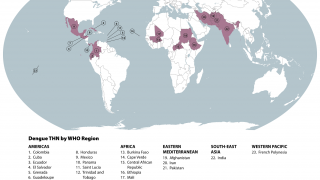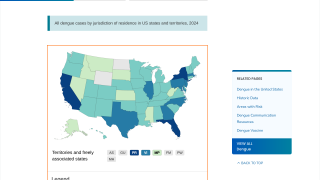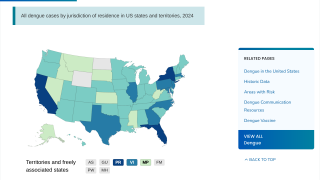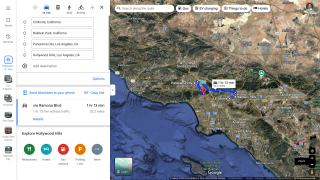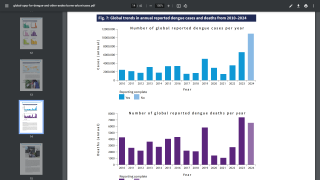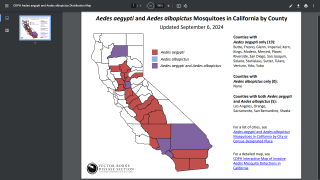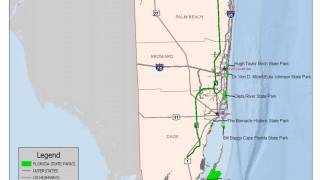Pakistan’s Dengue Outbreak Risk Assessed as ‘High’
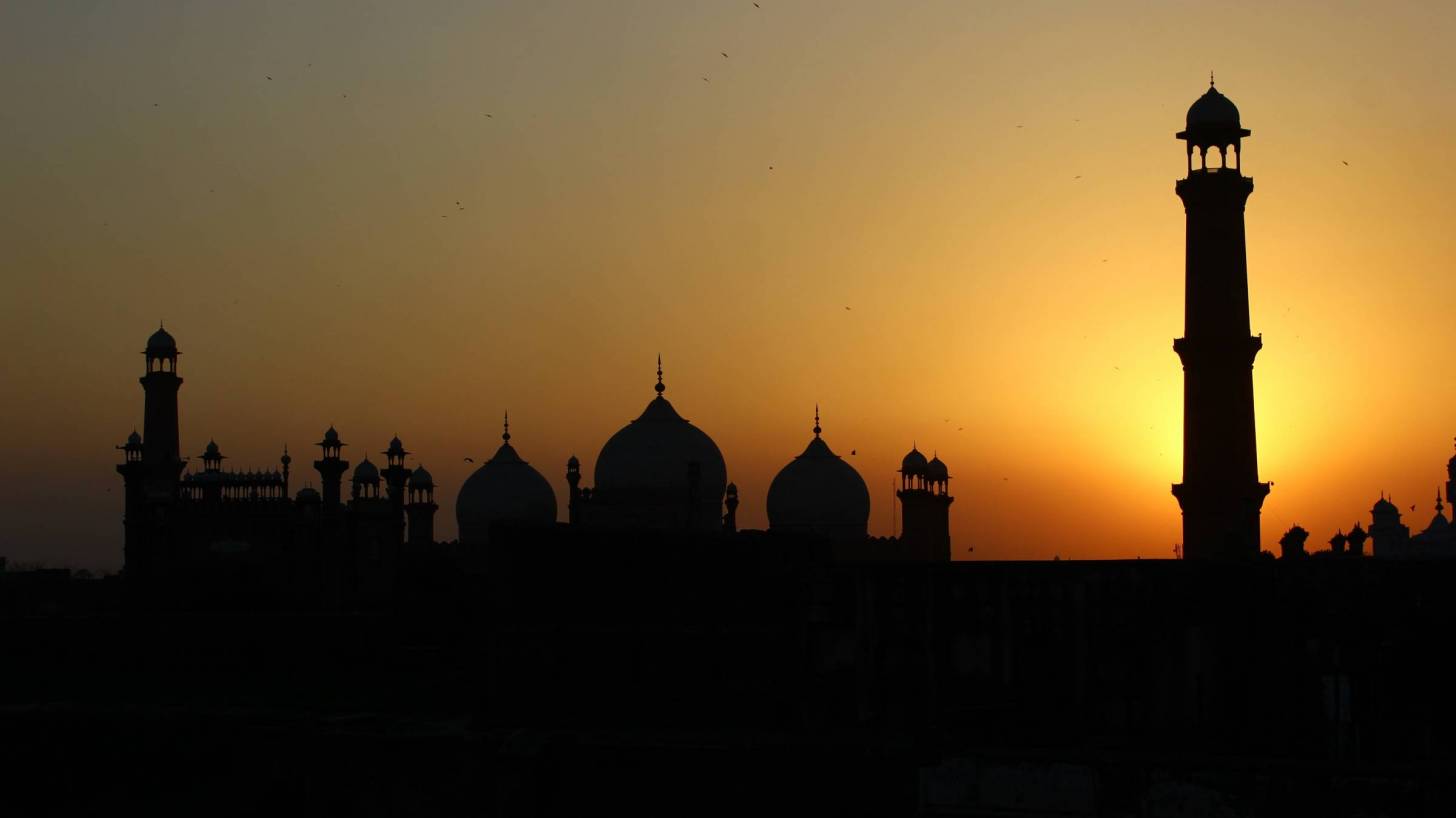
Pakistan health leaders announced they are aggressively responding to an ongoing Dengue Fever virus outbreak in four provinces.
According to a press release published by the World Health Organization (WHO) on November 19, 2019, since this Pakistan Dengue outbreak was first reported in July 2019, a total of 47,120 confirmed cases, including 75 related fatalities, have been confirmed as of November 12th.
In Pakistan, Dengue fever is endemic with reports of previous seasonal surges of cases and circulation of 3 different serotypes (DENV-1, DENV-2, DENV-3) in various parts of the country.
At this time, the WHO does not recommend any general travel or trade restrictions to Pakistan, based on the available Dengue outbreak information.
The WHO said in this press release that ‘the risk at the global level is assessed as ‘low.’
But, the overall Dengue risk at the national level is determined by the WHO to be ‘high’.
The WHO says ‘although initiatives for the dengue outbreak response were introduced in Pakistan during the 2017 outbreak in Peshawar, these were never brought into current practice. In the absence of a robust surveillance system for dengue in affected provinces, the evolution of outbreaks may be difficult to track.’
Furthermore, the WHO says the regional risk is assessed as ‘moderate.’
The Aedes albopictus mosquito, a Dengue vector, is known to be present in the Balochistan province bordering Iran and was detected in Afghanistan in 2018 from an area bordering the KP province.
This border has a cross-border movement of approximately 2,000 people per day. Should the outbreak spread to Afghanistan, the regional resources will be challenged, says the WHO.
The WHO distributed a brief update on the dengue fever situation in each of these areas:
Khyber Pakhtunkhwa (KP)
- From 8 July through 12 November 2019, a total of 7,641 confirmed cases of dengue fever were reported from KP and KP Tribal Districts.
Punjab
- From 1 August through 12 November 2019, a total of 9,676 confirmed dengue fever cases, including 16 deaths, have been reported.
Azad Jammu and Kashmir (AJK)
- From 1 August through 12 November 2019, a total of 1,689 confirmed cases of dengue fever, with one death, were reported.
Islamabad Capital Territory (ICT)
- From 6 August through 12 November 2019, 12,986 confirmed cases of dengue fever, including 22 deaths, have been reported from eight major hospitals in Islamabad.
Sindh
- From 1 September through 12 November 2019, a total of 12,053 confirmed cases of dengue fever, including 33 deaths, have been reported.
Balochistan
- From 18 September through 12 November 2019, a total of 3,075 confirmed cases of dengue fever were reported with three deaths. Serotyping of five positive samples confirmed the circulation of DENV-1.
According to the Ministry of Health in Pakistan, the following response measures have been taken:
- The National Institute of Health Emergency Operation Center (NIH EOC) has been activated since 16 September 2019 to monitor the disease situation in constant liaison with the provincial health departments.
- Vector surveillance and control activities have been initiated in Islamabad and Punjab. In Islamabad, Aedes aegypti larvae were present in 28 samples (39%) out of 71 samples collected.
- Most public and private hospitals are registered on the Punjab Information Technology Board (PITB) for case reporting; a dashboard has been created for case mapping.
- Rapid response teams are in place to conduct active responses at the household level and in infected areas.
- All provinces have arranged free of charge diagnostics and clinical management services for the cases
- Daily situation report is being disseminated to federal and provincial health departments.
- The Seasonal Awareness & Alert Letter (SAAL) and Advisory on Prevention and Control of Dengue have been widely disseminated along with information, education and communication materials.
- Dengue Control & Operations Cell has been set up in the Ministry with 24/7 access to the public. The Cell is also seeking feedback from households covered in the dengue response plan.
Dengue is a mosquito-borne viral infection, caused by four dengue virus serotypes (DENV -1, DENV- 2, DENV -3, DENV- 4). Infection with one serotype provides long term immunity to the homologous serotype but not to the other serotypes.
Sequential infections put people at greater risk for severe dengue and dengue shock syndrome (DSS).
WHO promotes the strategic approach known as Integrated Vector Management (IVM) to control mosquito vectors, including Aedes spp. IVM activities should be enhanced to remove potential breeding sites, reduce vector density, and minimize individual exposures.
This should include both larval and adult vector control strategies (i.e. environmental management, source reduction, and chemical control measures), as well as strategies to protect individuals and households.
Vector control activities should target all settings where human–vector contact occurs (including place of residence, workplaces, schools, and hospitals).
Pakistan is also confronted with various disease outbreaks, such as the following:
On November 5, 2019, the US Centers for Disease Control and Prevention (CDC) updated its extensive Travel Alert for Pakistan.
The CDC suggests various vaccinations prior to visiting Pakistan, which should be discussed with a healthcare provider prior to traveling abroad.
Dengue Fever Vaccine news published by Vax-Before-Travel
Our Trust Standards: Medical Advisory Committee


